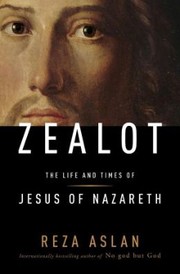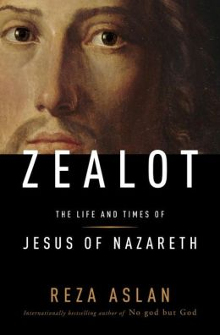 Zealot: The Life and Times of Jesus of Nazareth
Zealot: The Life and Times of Jesus of Nazareth
Reza Aslan’s exploration of Jesus as an historical figure does an excellent job providing a context to the gospel stories. That context helps in revealing not just the historical truth but also the intended meaning behind those stories. In particular, the in depth exploration of the power dynamics amongst the apostles and the early Church leaders is illuminated by the real-politik description of Roman power in 1st century Palestine.
This frantic attempt to reduce John’s significance, to make him inferior to Jesus—to make him little more than Jesus’s herald—betrays an urgent need on the part of the early Christian community to counteract what the historical evidence clearly suggests: whoever the Baptist was, wherever he came from, and however he intended his baptismal ritual, Jesus very likely began his ministry as just another of his disciples.
Christianity after the destruction of Jerusalem was almost exclusively a gentile religion; it needed a gentile theology. And that is precisely what Paul provided. The choice between James’s vision of a Jewish religion anchored in the Law of Moses and derived from a Jewish nationalist who fought against Rome, and Paul’s vision of a Roman religion that divorced itself from Jewish provincialism and required nothing for salvation save belief in Christ, was not a difficult one for the second and third generations of Jesus’s followers to make.
